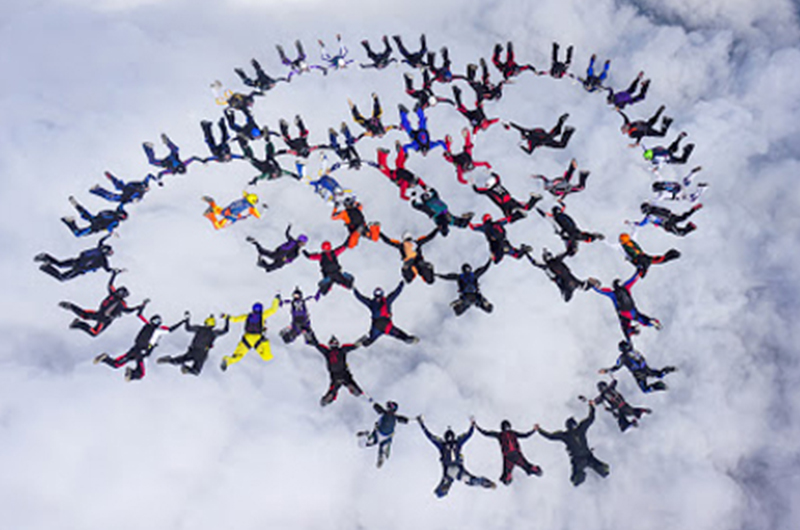Involves sessions in the following areas with teams to develop and maintain the desired Atmosphere and Working Culture.


Systems Theory views the individual as a system living within larger systems, in personal relationships, work relationships, and so on.
- A healthy system is organized around the support, regulation, nurturance and well being of its members.
- The system has self-perpetuating properties and a wisdom of its own.
- The system drives itself in finding structural and other ways to transform, and continue to produce at least one new possibility for further improvement.
- The important action is not repairing or modifying a function, but rather ‘’revealing’’ its nature to all related parties. This supports the members to become ‘’response-able’’ to better perform the necessary tasks of the system. It also helps the system to self-regulate.
- Because of the self-regulating nature of the system, a change in one area of the system induces change in the rest of the system.

- The System Approach focuses on the Relationship System rather than the individual’s behavior within the team. The main focus is on the ‘impact’ created by team members as individuals within the system.
- It is essential to raise awareness of the ‘Voice of the System’ rather than the individual voices of the system members. Therefore, it is ensured that the agenda of the team/system is revealed instead of the individual’s agenda.
- It is aimed to work with the whole system, to see the whole and the ‘effect’ of the whole.
- It is ensured that the system reveals itself and experiences the competencies and tools that will enable it to gain self awareness. Thus, system members become better at performing their roles in the system. This mirroring & reflecting process supports the system’s self-regulation.
- The system reveals itself and reveals its own wisdom,
- Designing the Team Alignment/Agreement to create the necessary atmosphere, culture, climate for performance, commitment, conflict management, etc. in the system,
- Recognizing certain approaches (attitudes) that have a positive impact in the business environment, and making conscious and intentional choices,
- Reading the Emotional Field of the System and revealing its effect on the system,
- Creating a Positive Work Environment and Non-Violent Communication (NVC) Culture
- Becoming aware of the Toxins and their Antidotes
- Reaching the competence to become aware of the different Roles (inner/outer/triggered) within the system.
- Understanding (empathy) the facts and challenges of different functions (Lands)
- Ensuring that all the voices in the system (all team members) appreciate each other and use feedback to work towards a more efficient system.

In addition to talking about Emotional Intelligence and Social Intelligence, we are now also talking about Relationship Systems Intelligence. Relationship Systems Intelligence begins with self-understanding, articulating one’s self emotions (EQ) and includes understanding the emotional experiences of others (SI), and ultimately reaches its apex (RSI) with the ability to identify and collaborate with teams, communities, and other social systems.
Relationship Systems Intelligence – gives the ability to work deftly with the emotional aspects of all levels of Relationship Systems with Ourselves, Others, the Team, and the Whole.
And this enables us to become flexible and resilient individuals, partners, and teams.
- The Relationship System is naturally Intelligent and Creative,
- The Relationship System is the focus,
- The Whole of the Relationship System is handled,
- The Awareness about the System itself is created and revealed to itself.
(What’s going on within the system? What is the sytem trying to become?)
- RSI is the ability to maximize one’s relationship with a team/system and to relate everything to it to become Whole.
- RSI involves the ability to move from seing a group of individuals to seing the system itself, as a living breathing entity. (Third Entity)
- Conflict is not seen as a problem, but is seen as a signal that change is needed in the system. It’s not about ‘’who is doing what to whom; it’s about what is it trying to become’’.
- RSI includes the ability to read the emotional field of the system and accurately identify the emotional climate in a given situation. Once the system has revealed to itself it can begin to self-correct.
- RSI requires Deep Democracy. Which is the practice of recognizing that all voices in a relationship system need to be heard – including the unpopular / different ones – as they are a part of the knowledge pool of the system. Every voice carries data, information and wisdom in some way for that system.
- Everyone is a Voice of the system. The ability to shift from personal perspective to a Sytems perspective.
- An overview of RSI would be that it’s not about ‘’me’’, and it’s not about ‘’me and you’’, it’s about ‘’we’’ in the System and “What the system is trying to become?”
